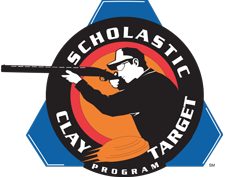Fundraising for Your Team: Sponsorships

This is part of a series of posts on fundraising for SCTP and SPP teams.  A sponsor can be your team’s best friend, providing anything from necessary funds to uniforms to shooting equipment to raffle items. You also gain the caché and confidence that comes with being associated with that sponsor. But there's more to having an effective sponsorship program than most people realize. If there's one fact that should guide you in sponsor solicitation, it is this: Potential sponsors are solicited by athletic teams, yearbook staffs, cheerleader squads, charities, and every organization in town that depends upon the support of the community. How you set yourselves apart from the rest of the crowd will determine your success. Here are some tips to consider:
A sponsor can be your team’s best friend, providing anything from necessary funds to uniforms to shooting equipment to raffle items. You also gain the caché and confidence that comes with being associated with that sponsor. But there's more to having an effective sponsorship program than most people realize. If there's one fact that should guide you in sponsor solicitation, it is this: Potential sponsors are solicited by athletic teams, yearbook staffs, cheerleader squads, charities, and every organization in town that depends upon the support of the community. How you set yourselves apart from the rest of the crowd will determine your success. Here are some tips to consider:
 A sponsor can be your team’s best friend, providing anything from necessary funds to uniforms to shooting equipment to raffle items. You also gain the caché and confidence that comes with being associated with that sponsor. But there's more to having an effective sponsorship program than most people realize. If there's one fact that should guide you in sponsor solicitation, it is this: Potential sponsors are solicited by athletic teams, yearbook staffs, cheerleader squads, charities, and every organization in town that depends upon the support of the community. How you set yourselves apart from the rest of the crowd will determine your success. Here are some tips to consider:
A sponsor can be your team’s best friend, providing anything from necessary funds to uniforms to shooting equipment to raffle items. You also gain the caché and confidence that comes with being associated with that sponsor. But there's more to having an effective sponsorship program than most people realize. If there's one fact that should guide you in sponsor solicitation, it is this: Potential sponsors are solicited by athletic teams, yearbook staffs, cheerleader squads, charities, and every organization in town that depends upon the support of the community. How you set yourselves apart from the rest of the crowd will determine your success. Here are some tips to consider:- While businesses that sell shooting supplies are a perfect fit, don’t limit yourself to those. A local business whose owner supports the shooting sports and/or youth activities might be an ideal candidate. The person who owns an auto parts store or hair salon might be an avid shooter or 2nd Amendment supporter who would be proud to be associated with a youth shooting team.
- Before calling on a potential sponsor, plan your presentation and strategy. Develop a simple but thorough written proposal that includes information about your team, SCTP or SPP, what you're asking for, and what's in it for them, then discuss those points with the prospect. After you leave, they should have everything they need to consider your proposal and/or explain it to others in the company. Need help telling the SCTP/SPP story? Use our videos.
- Parents and coaches: while it is great for you to be involved and even take the lead in sponsor proposals, remember to keep the student athletes involved. If you're making a presentation, take along at least one member of the team to participate.
- Know your audience and be selective. Never walk down Main Street with your proposal in hand and make cold calls at every door. Select those businesses you think might be a good fit and address your proposal to them. Call in advance to learn who the decision-maker is or what the proper channels are for making a sponsorship proposal. While you may be inclined to insist on speaking with the president or owner, the business' protocol may require you to start with a marketing person. You won't win any points by bypassing protocol. NEVER make a "to whom it may concern" or "Dear Sir" proposal.
- Be creative in what you ask for. You're more likely to get a sponsor when your proposal includes something other than or in addition to writing a check. Consider what your needs are and how that sponsor might help. Could they provide necessary products like ammunition or shirts and hats for tournaments? Could they offer a discount to team members on shooting products? Help with a fundraising raffle by selling tickets or posting flyers at their business? What you ask for will probably vary depending on the type of business, its size, its interest and involvement in the shooting sports, and the interest of management in shooting.
- Consider different levels of sponsorship with different levels of benefits and cost. Not every business has the same resources available, and a small sponsorship is a good way to develop a relationship that could grow into something larger.
- Be prepared for rejection. You may hear "no" more often than "yes," but you should leave with the same degree of grace regardless of the answer. If what seems to be an ideal sponsor rejects your proposal, don't take it personally. Even if they want to sponsor your team, they may need to say "no" because of financial constraints, prior commitments, lack of authority, or other reasons. Thank them for their time and consideration.
- A simple "thanks." You would be surprised how far saying "thank you" will go and how many organizations take their sponsors for granted, never bothering to use those two words. Use them often -- both publicly and privately!
- Keep them informed. Tell them about the tournaments your team will be participating in, how your team is doing, and how you are using their contribution.
- Include the sponsor's name, logo, and/or ad on your website, in social media pages, on your uniforms or t-shirt, in any printed programs or materials, and anywhere else there is an opportunity.
- Recognize them whenever possible at any annual banquet, shoot, or other team event.
- Provide free tickets, based on the level of support, to any banquet or event your team hosts.
- Get them involved. If it's a local company -- and most will be -- invite them to a shooting event or practice. Don't you think they would enjoy shooting the SPP stages or shooting a round of trap with you at practice? The more emotionally invested they are with your team, the more financially invested they are likely to be.


